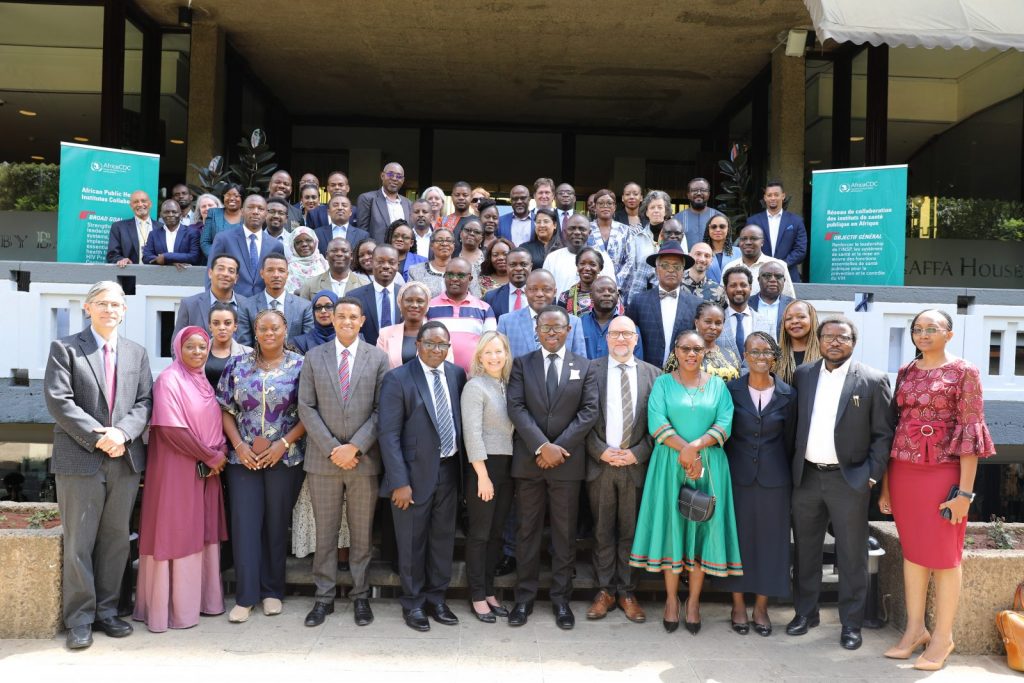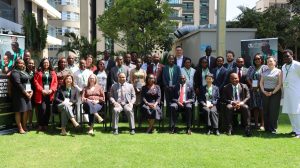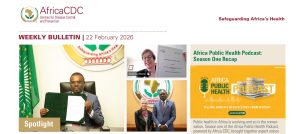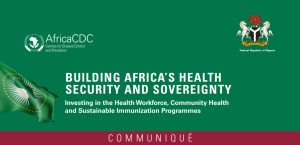Three global health partners launched a pioneering peer-to-peer learning initiative, the African Public Health Institutes Collaborative (APHIC), at an inaugural meeting in Addis Ababa this week, highlighting the importance of strengthening collaborations across core public health functions to have greater impact by working together.
The new initiative is a collaboration between the Africa Centres for Disease Control and Prevention (Africa CDC), the U.S. President’s Emergency Plan for AIDS Relief (PEPFAR) within the State Department Bureau of Global Health Security & Diplomacy, and the United States Centers for Disease Control and Prevention (U.S.-CDC). Aimed at bolstering leadership within National Public Health Institutes (NPHIs), fortifying resilient health systems, and enhancing essential public health functions — this collaborative venture will sustain the gains and impact in HIV response across the continent.
Participants at the inaugural meeting discussed how at the heart of APHIC lies a commitment to empower NPHIs across Africa by bolstering their core capacities and integrating public health components of HIV response, thereby sustaining and accelerating progress towards HIV epidemic control. This initiative will advance NPHI development, strengthen core public health capabilities, and foster peer-to-peer learning among NPHI leadership and key stakeholders, including Ministries of Health and National AIDS Councils.
Speaking at the launch, Africa CDC’s Acting Deputy Director General, Dr Raji Tajudeen highlighted the transformative nature of NPHIs in ensuring inclusive public health responses and setting evidence-based health agendas. He noted that strengthening leadership capacities at NPHIs is critical, emphasizing the instrumental role these institutions play in reaching the global goal of ending HIV/AIDS as a public health threat by 2030.
Dr John Nkengasong, Ambassador-at-Large U.S. Global AIDS Coordinator and Senior Bureau Official for Global Health Security and Diplomacy, expressed optimism about APHIC’s potential. “Today’s convening of the African Public Health Institutes Collaborative is a step in the right direction to strengthen surveillance, laboratory networks, workforce, emergency operations center coordination, data and information management across Africa. PEPFAR is proud to join U.S. CDC in support of this Africa CDC-led effort.”
Aligned with the strategic pillars of the New Public Health Order (NPHO), APHIC underscores the importance of “Respectful and Action-oriented Partnerships” and focuses on Africa CDC’s core mandate to strengthen member states capacities at all levels for effective preparedness and response to future health threats. “A common theme we’ve heard across country contexts and technical areas is that emergencies drive integration of HIV systems with response to other outbreaks,” says Dr Elias Durry, U. S. CDC Senior Advisor to Africa CDC. “Emergencies require us to come together for the good of public health.”
Key activities of APHIC will be implemented through collaborative engagements with leaders of NPHIs in Africa to include sharing of best practices, challenges, opportunities, and lessons learned on HIV-related systems activities, leveraging plans for support of NPHIs in PEPFAR’s COP23 and ongoing NPHI investments through other bilateral and multilateral institutions.
**END**
About APHIC:
The African Public Health Institutes Collaborative (APHIC) is a joint initiative between Africa CDC, PEPFAR, and U.S.-CDC, aimed at strengthening leadership within NPHIs, fortifying health systems, and advancing critical public health functions to sustain progress in HIV response across Africa. Through peer-to-peer learning and strategic partnerships, APHIC strives to empower NPHIs and enhance public health outcomes on the continent.
About Africa CDC
The Africa Centres for Disease Control and Prevention (Africa CDC) is a continental autonomous public health agency of the African Union that supports member states in their efforts to strengthen health systems and improve surveillance, emergency response, and prevention and control of diseases. Learn more at: https://africacdc.org
Media inquiries: Margaret Edwin, Director of Communication & Public Information Division: Africa CDC | Tel: +251 986 632 878 | Email: EdwinM@africacdc.org







